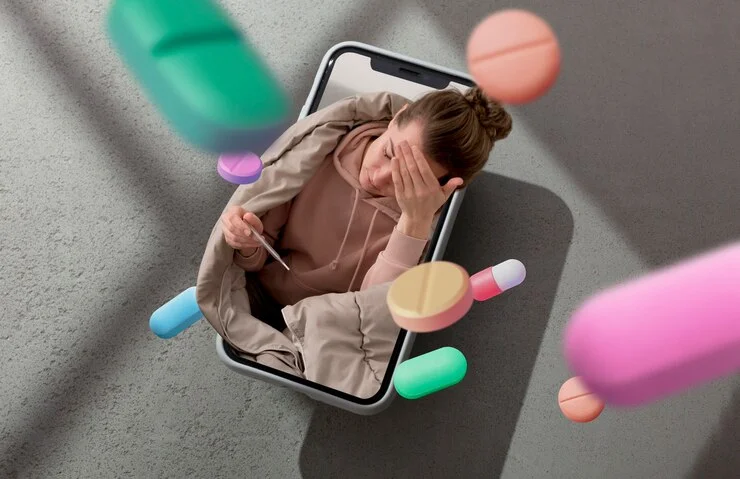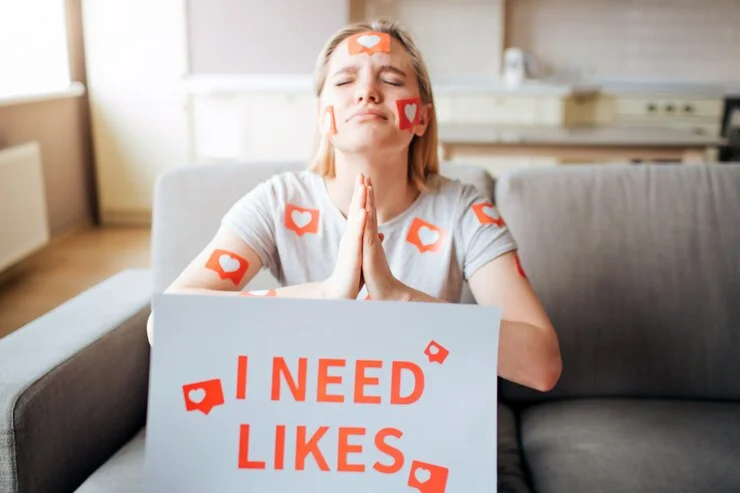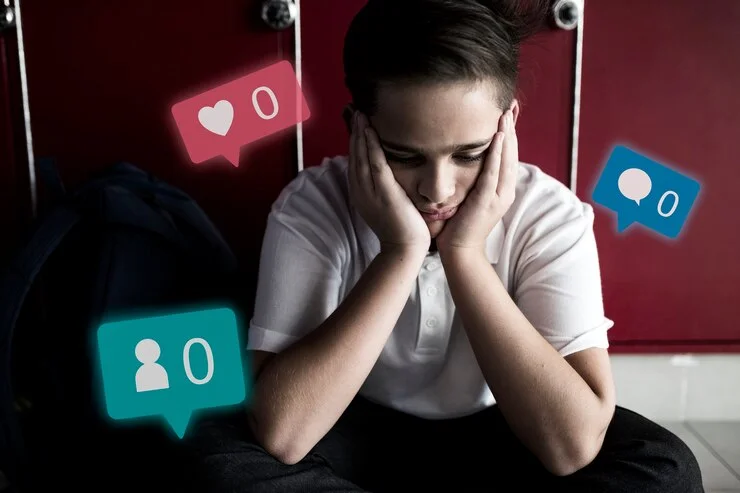-
129, Block-A Bangur Avenue, Mousumi Appartment, Kolkata 700055
129, Block-A Bangur Avenue, Mousumi Appartment, Kolkata 700055

Explore the evolving impact of social media on mental health in 2025. Understand the various Social Media Mental Health Effects, such as the pressures of comparison, online bullying, and digital addiction, and how they can affect your emotional well-being. This guide will provide insights into managing your digital presence in a healthier way. If you find it overwhelming, seeking support from a reputed psychological counselor can help you develop strategies for a balanced approach to social media and mental health.

In 2025, social media continues to play an essential role in the way we connect, communicate, and share our lives. With millions of people engaging on various platforms every day, its influence on mental health has become increasingly significant. While social media offers several benefits, such as staying connected with loved ones and sharing important updates, it also has a dark side that can affect mental well-being. The Social Media Mental Health Effects are becoming more evident, with challenges ranging from feelings of isolation to the pressure to maintain a perfect online image. The impact of social media on mental health is multifaceted and deserves attention.
As digital engagement continues to grow, it’s crucial to understand how social media can impact mental health. Research suggests that the social media mental health effects can vary depending on how platforms are used, the time spent online, and the type of content consumed.
Key Social Media Mental Health Effects:

As social media use rises, the importance of mental health awareness also grows. It’s crucial for individuals to understand the potential risks and take proactive measures to protect their mental well-being in the digital age. This is where a psychological counselor, especially a trained professional psychological counselor, can help individuals process and cope with the mental health challenges linked to social media.
Tips for Managing Social Media’s Impact on Mental Health:
One of the biggest concerns regarding social media in 2025 is digital addiction. With algorithms designed to capture attention and keep users engaged for long periods, social media platforms can easily lead to compulsive usage. These behaviors are among the most concerning Social Media Mental Health Effects, negatively impacting various aspects of life, from work and school performance to personal relationships and overall happiness.
Signs of Social Media Addiction:
Social media plays a pivotal role in the lives of teenagers and young adults. It often serves as a platform for self-expression, connection, and validation. However, the pressure to present a flawless image online can have detrimental effects on mental health. Issues such as cyberbullying, body image concerns, and anxiety are increasingly prevalent among younger generations.
While social media allows adults to stay connected with family, friends, and colleagues, it also comes with its own set of challenges. Professional networking, while helpful, can cause stress due to the constant pressure to maintain an online presence. The struggle to juggle personal and professional life, especially for parents, can lead to burnout and feelings of inadequacy.
While social media can help seniors stay in touch with family and friends, it can also trigger feelings of isolation if not used mindfully. Seniors may experience loneliness or frustration if they aren’t able to navigate social media platforms effectively or feel disconnected from the digital world.

1. Can social media cause depression?
Yes, prolonged social media usage, especially when individuals compare themselves to others or engage in toxic content, can lead to feelings of depression, inadequacy, and isolation.
2. How can I reduce the negative effects of social media on my mental health?
To reduce the negative effects, try setting time limits for social media use, curating your feed, practicing mindfulness, and prioritizing offline relationships and activities.
3. Should I seek professional help for social media-related anxiety?
If social media is causing significant anxiety, depression, or stress, seeking help from a psychological counselor is beneficial. A professional can guide you in managing social media’s impact on mental health.
4. How do I recognize social media addiction?
Signs of addiction include the inability to stop using social media, prioritizing it over real-life tasks, and feeling anxious when not online.
5. Can social media be good for mental health?
While social media has its risks, it can also be a platform for support, learning, and connection when used mindfully. Follow positive accounts, engage in uplifting conversations, and avoid harmful comparisons.
In conclusion, social media in 2025 continues to shape our daily lives, but it’s crucial to be aware of its mental health effects. The impact of social media on mental health is not a one-size-fits-all experience; it varies depending on how it’s used and the individual’s susceptibility. By practicing self-awareness, setting boundaries, and engaging in positive digital habits, we can mitigate the negative consequences and use social media in a healthy and balanced way.
If you find yourself struggling with the Social Media Mental Health Effects, don’t hesitate to reach out to a trusted professional. Seeking guidance from the Best psychological counselor in Kolkata can help you navigate the complexities of modern digital life and maintain a positive mindset.
If you’re feeling overwhelmed by the effects of social media on your mental health, consider consulting a professional counselor. They can help you develop personalized strategies for managing stress, anxiety, and other mental health challenges associated with digital life.